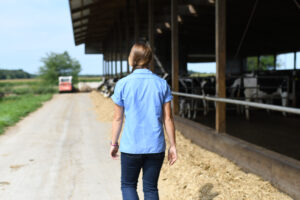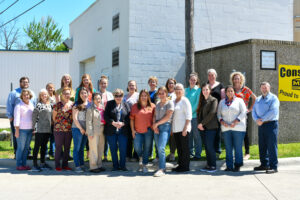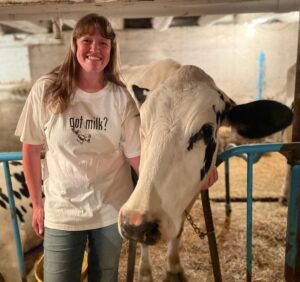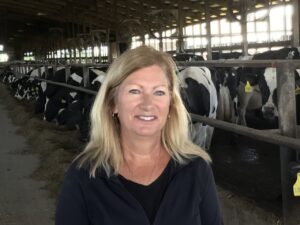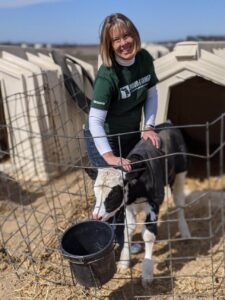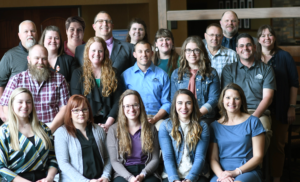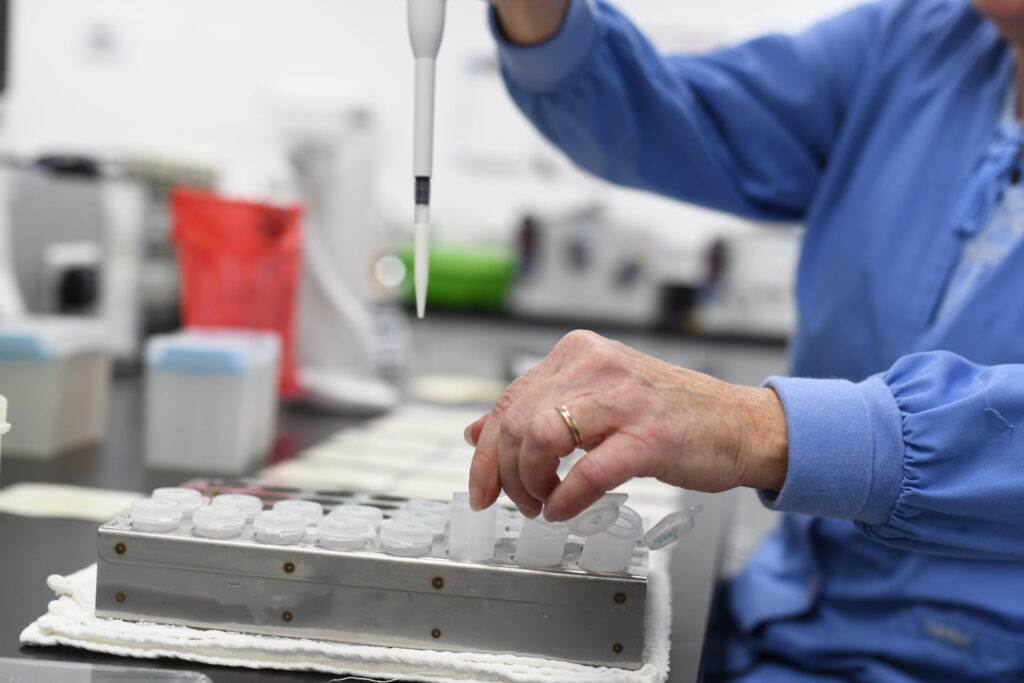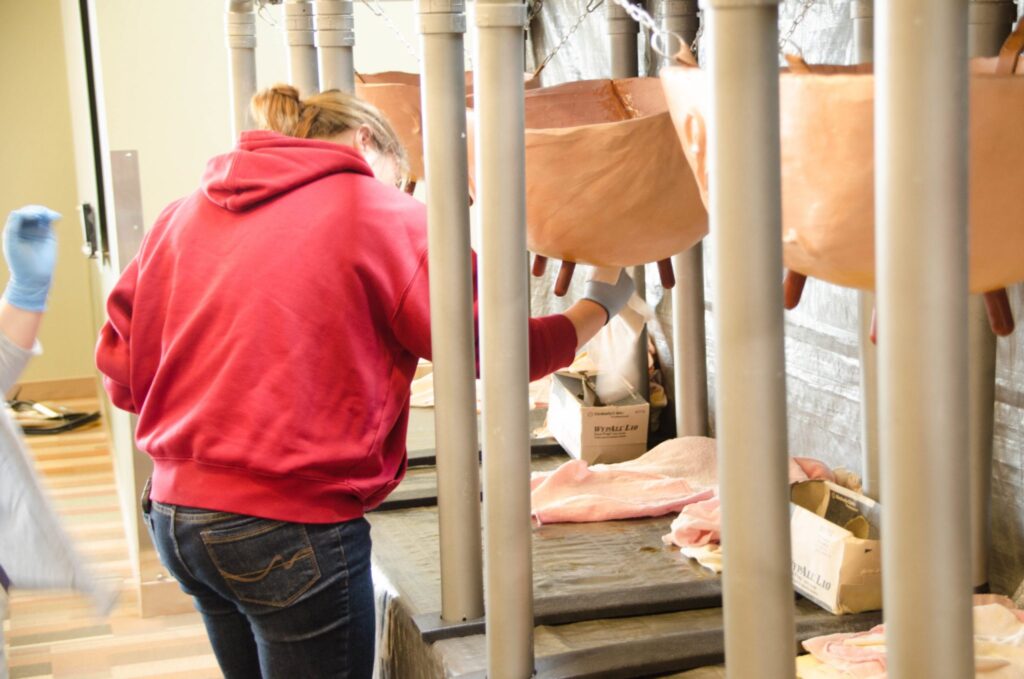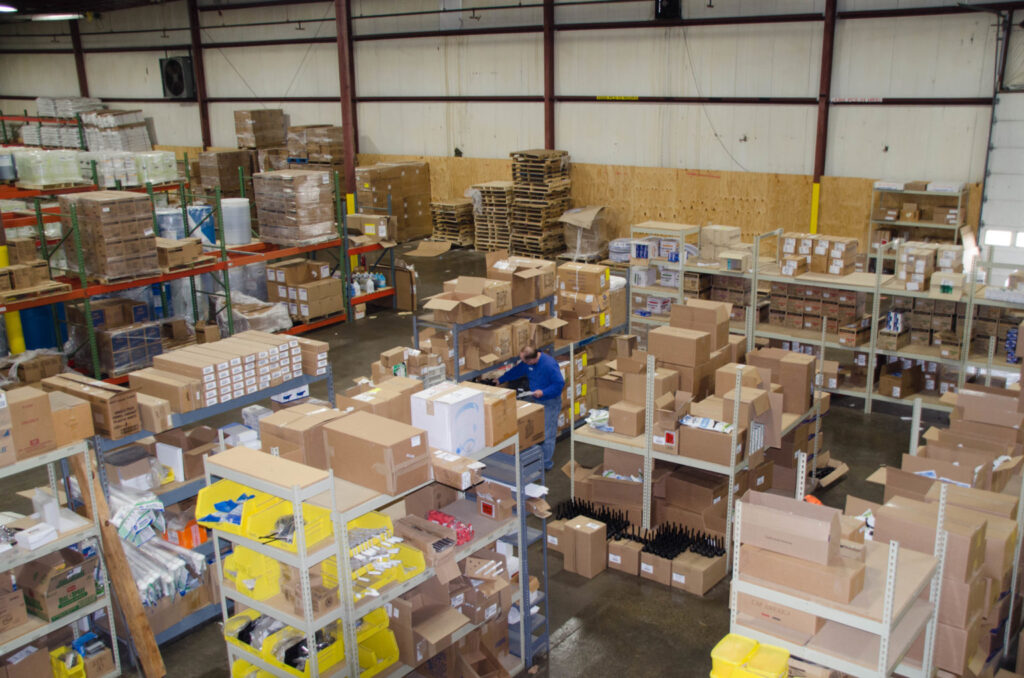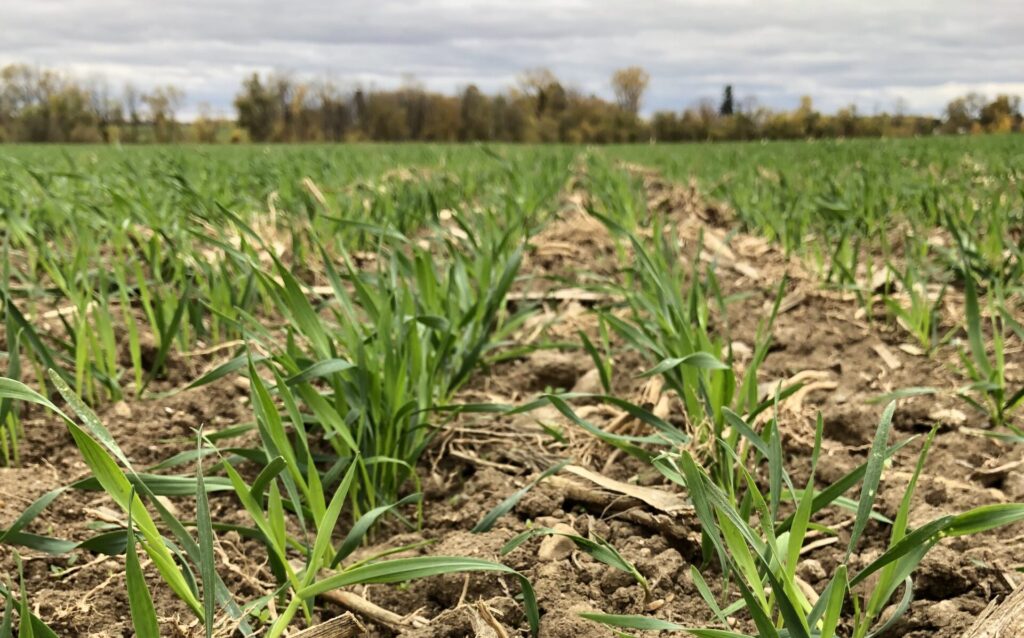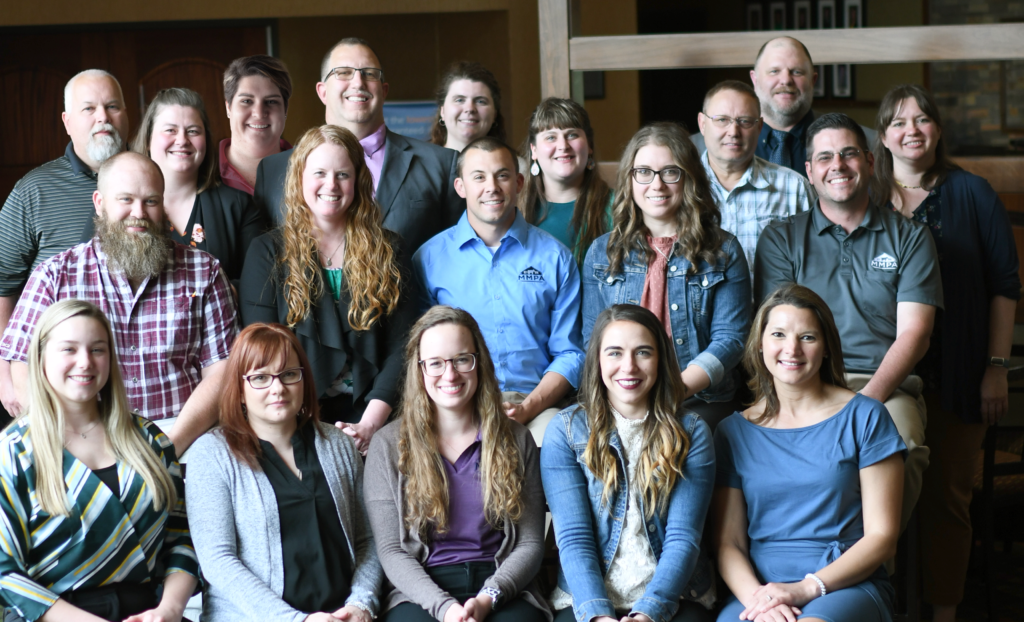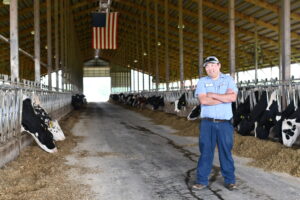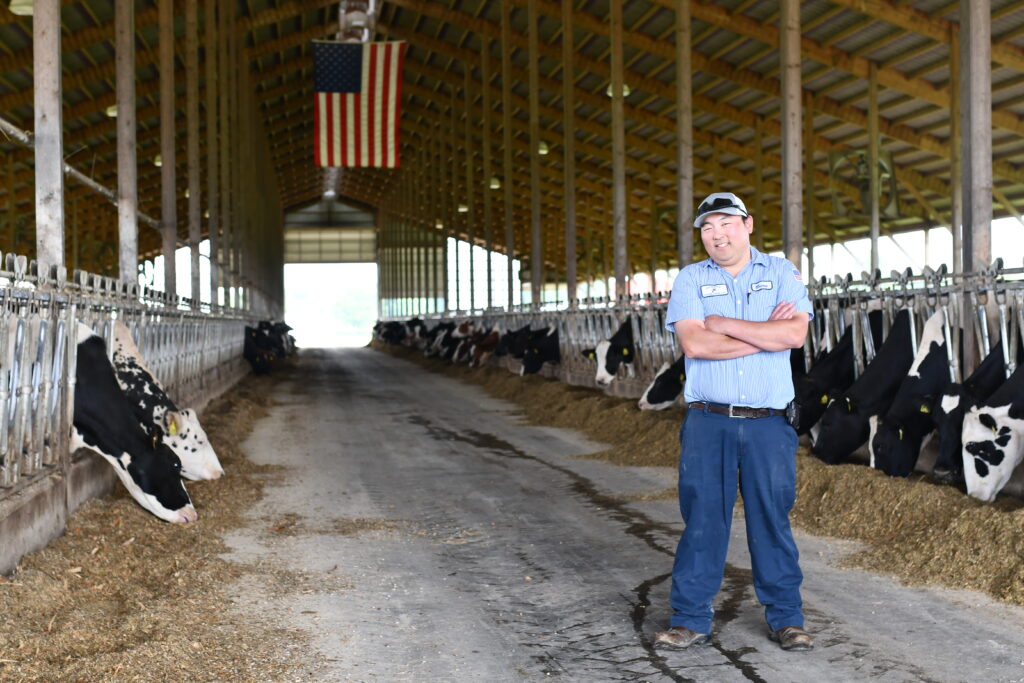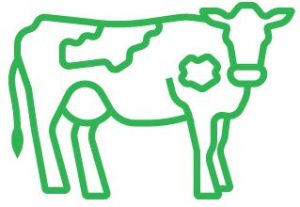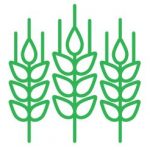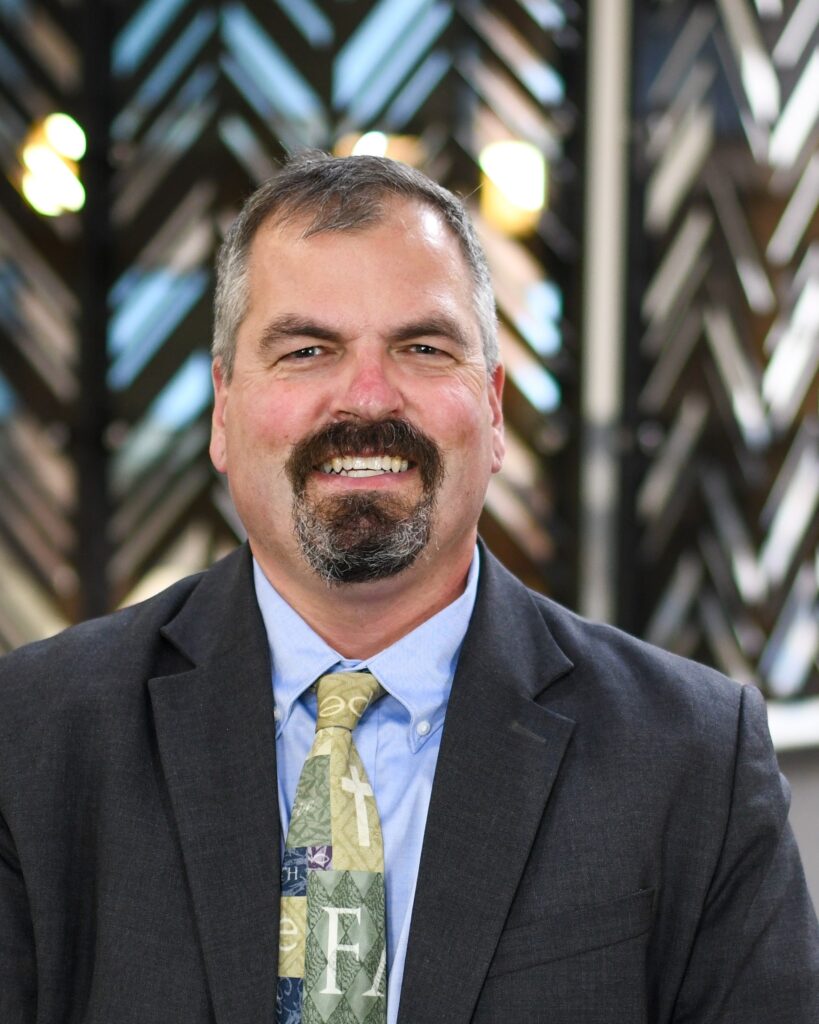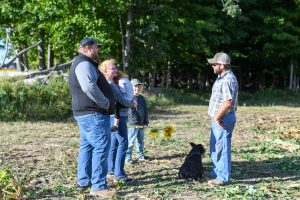
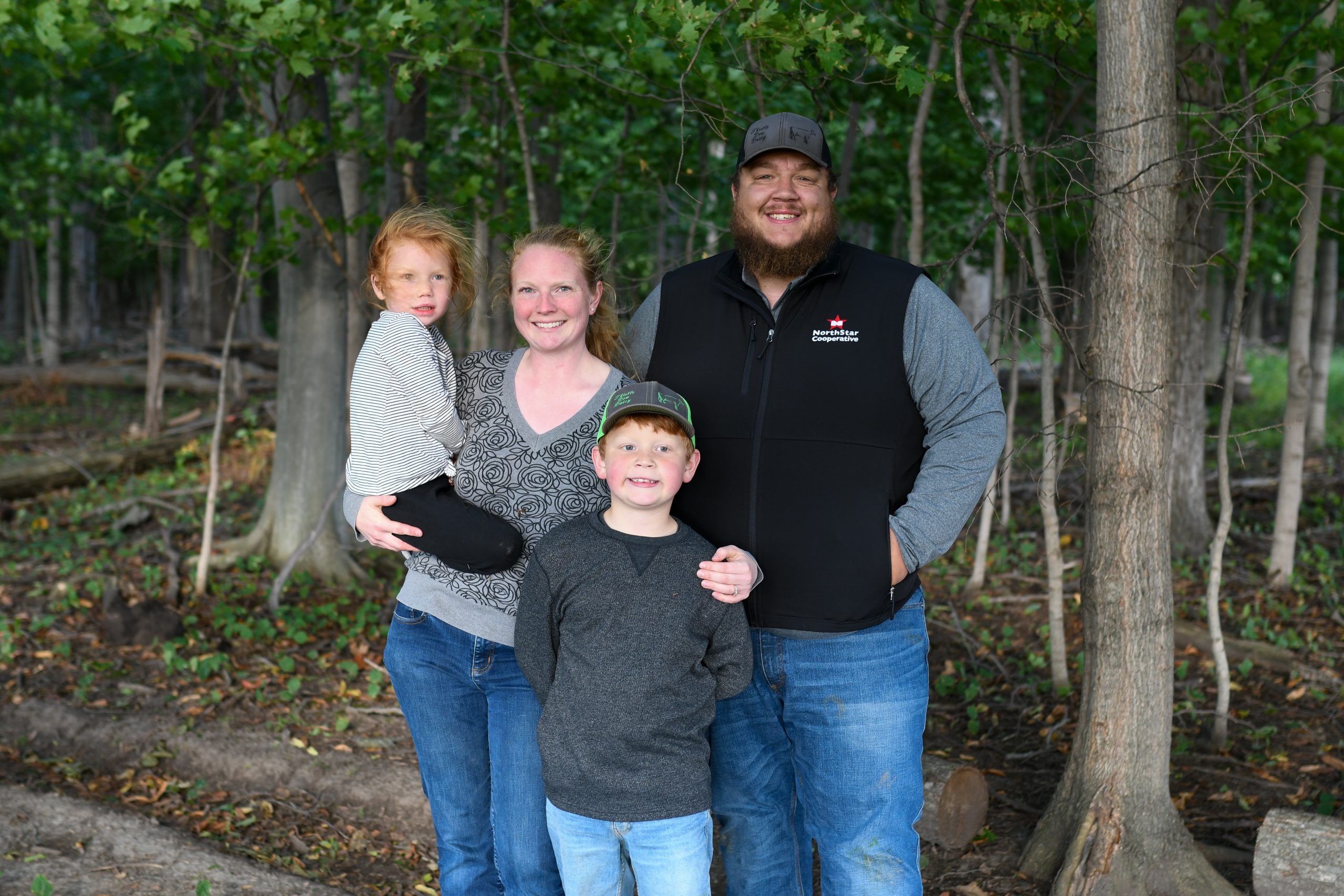 Nearly every college graduate has one story about a wild night or an unforgettable memory that forever changed the trajectory of their life. The memories are typically set in scenes of college parties and dorms – not in dairy sale barns like it is in the case for Drew and Beth Rupprecht, the 2022 MMPA Outstanding Young Dairy Cooperator (OYDC) Runners-Up.
Nearly every college graduate has one story about a wild night or an unforgettable memory that forever changed the trajectory of their life. The memories are typically set in scenes of college parties and dorms – not in dairy sale barns like it is in the case for Drew and Beth Rupprecht, the 2022 MMPA Outstanding Young Dairy Cooperator (OYDC) Runners-Up.
“I went to Michigan State University and I joined Dairy Club, because I didn’t know anything about cows, and that’s where I met Drew,” Beth recalled. “I went with him to a couple shows and then I bought my own heifer that I kept at his family’s place. It’s like getting a dog together, only bigger, and it’s not that easy to move it.”
The comedy is quickly humbled by the fact that 12 years later, that heifer is the foundation of their now 65-cow herd on Thistle Dew Dairy in Vassar, Michigan, at the original Rupprecht homestead established in 1865.
“My parents had a dairy, but they sold out in 2004,” Drew said. “When I met Beth, we started showing more and our cows started to multiply. At one point we had 15 milk cows out on six different people’s farms and it got to the point where we either had to reduce the herd size or milk cows.”
They chose to milk cows and Drew quit his post-college job as an MMPA field representative to begin dairying full time. Since Drew’s family had always intended to return to dairying, the equipment was left behind and was in good condition.
“I took the opportunity when it came to fix the barn back up and I bought 10 head to start out milking 30 cows,” Drew said. “We took some of the stanchions out and made them into calf pens on the north side of the barn and used ten stalls as a flat parlor. We reran the highline too because I don’t know how it ever washed the way it was run before.”
Drew’s experience as an MMPA field representative prepared them well, with Beth pointing out that many of the renovations and upgrades were a consequence of having a “fieldman turned dairy farmer.” Wanting more flexibility in their schedules as their family was growing, Drew and Beth installed a Lely A3 milking robot that went into operation in 2019.
“We’ve talked to a lot of people who are looking at getting robots and while it looks like we have so much free time, it’s not free time, it’s different time,” Beth said. “It’s more flexible time so I can pick my kids up from school and go to their ball games, but it’s not less work.”
The robot has been a good addition to their farm and they’re working to continue finding efficiencies, with a major breakthrough happening just this summer.
“There aren’t a lot of mixed herds that operate in robots so accommodating our Holsteins and our Jerseys required us to figure out where that sweet spot is,” Beth said. “After two years of trying to figure out the little differences between the two breeds, we finally figured it out this summer.”
Drew and Beth analyzed the robot’s data to make small adjustments to the nutrition and milk access the different breeds had to the robot. Within days, their changes resulted in their herd jumping from an average of 2.5 milkings per day to 3.4 milkings per day, and their Jersey herd is milking an average five pounds more per day than before.
“One thing we’ve learned through this process is that we know our farm best and we need to go with our gut,” Beth said. “We know when something’s not right and we recognize that there are experts who have extensive training, but our setup is not traditional with the open barnyard and being a mixed herd. We’re getting better at going with our gut because we know our cows.”
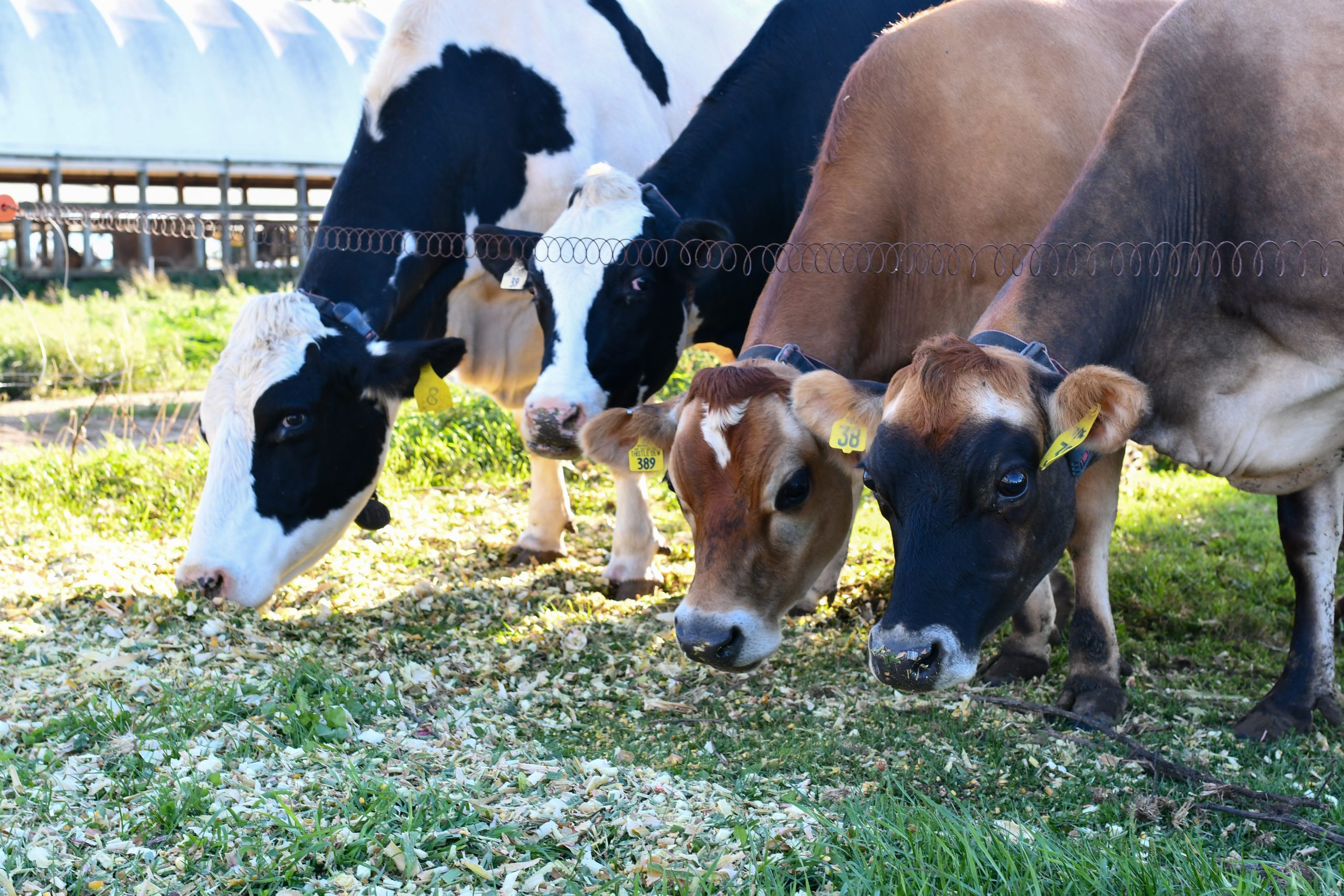
These small changes to their operation are happening in all areas and sustainability is at the forefront of their efforts. Along with being a 100% no-till operation, the Rupprechts have been using cover crops to provide forage for their heifers and dry cows.
“We’re tinkering and dialing things in,” Drew said. “We’re finding more sustainable and better ways to do things to become more efficient.” Beth added, “We spent the first five years getting the farm where we wanted it, and now we are honing in and capitalizing on our efficiencies by making those little changes.”
Another change the Drew has made is to their farm’s breeding program. Drew’s passionate about registered dairy cattle and creating high type functioning cows. In the past two years, Drew began aAa analyzing his cows to make mating choices in conjunction with typical trait analysis. The aAa analysis is based on six categories that looks at structural balance and internal functionality of the cows.
“I’m still breeding for type, I’m just trying to mesh in more health traits, balance and longevity,” Drew said. “In my mind, if aAa is another tool to make a better cow, why not? I hope to make some good cows that can go and show well, but really, I want high type functional cows. Will it be a cherry on top to win a big show? Yes, but in the end those cows need to be healthy and need to last for that to happen.”
The dialing in is working, as Beth points out, “We have the top breed association average Holstein herd in the state, and have heifers ranking well at the national level, while still making improvements to cow functionality in the barn.” The success is a part of their continuous drive and are all part of the Rupprecht’s greater plan to give something to their kids that they never had – a life on the farm with the opportunity to return.
“In college I had wanted to come back to dairy farm or come back to the farm even if it wasn’t for dairy, but I couldn’t, because it couldn’t sustain both dad and I,” Drew admits. “I’d say a big goal of ours is to have our operation set up in a way where, when our kids get to that point in their life, there’s something for them to work at if they want to.”
To facilitate that, Drew and Beth have their sights set on installing a creamery, encouraging agritourism while making room for the next generation. They admit though, the creamery was the plan before their dairy herd even existed because having a clear vision is one of the many reasons they’ve had such success.
“At the end of the day, we’re not in this business for the milk check,” Beth said. “Obviously that’s what makes us cash flow and allows us to do what we do, but we both love cows, Drew likes breeding good cows and it’s both of our dreams to have a cheese operation. Really, milking cows is what’s getting us to our end goals.”
With lofty goals ahead of them, Drew and Beth recognize that the more you feel like you’re making progress, the more you find out what you have to do. While dairy farming can be overwhelming at times, it’s Drew and Beth’s drive to succeed that encourages them to keep dialing in and finding that success.
This article was originally published in the November/December 2022 issue of the Milk Messenger. Subscribe »



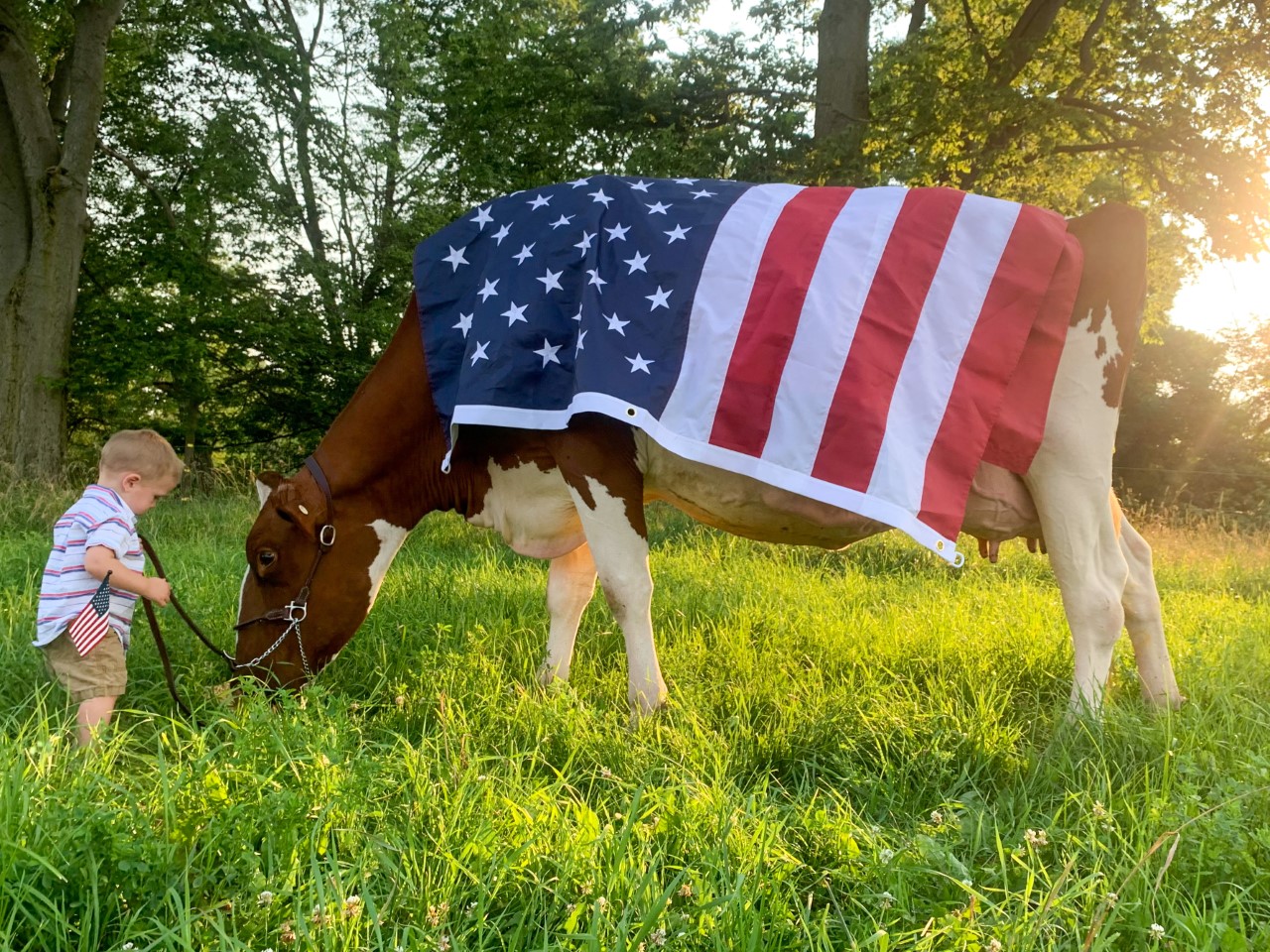
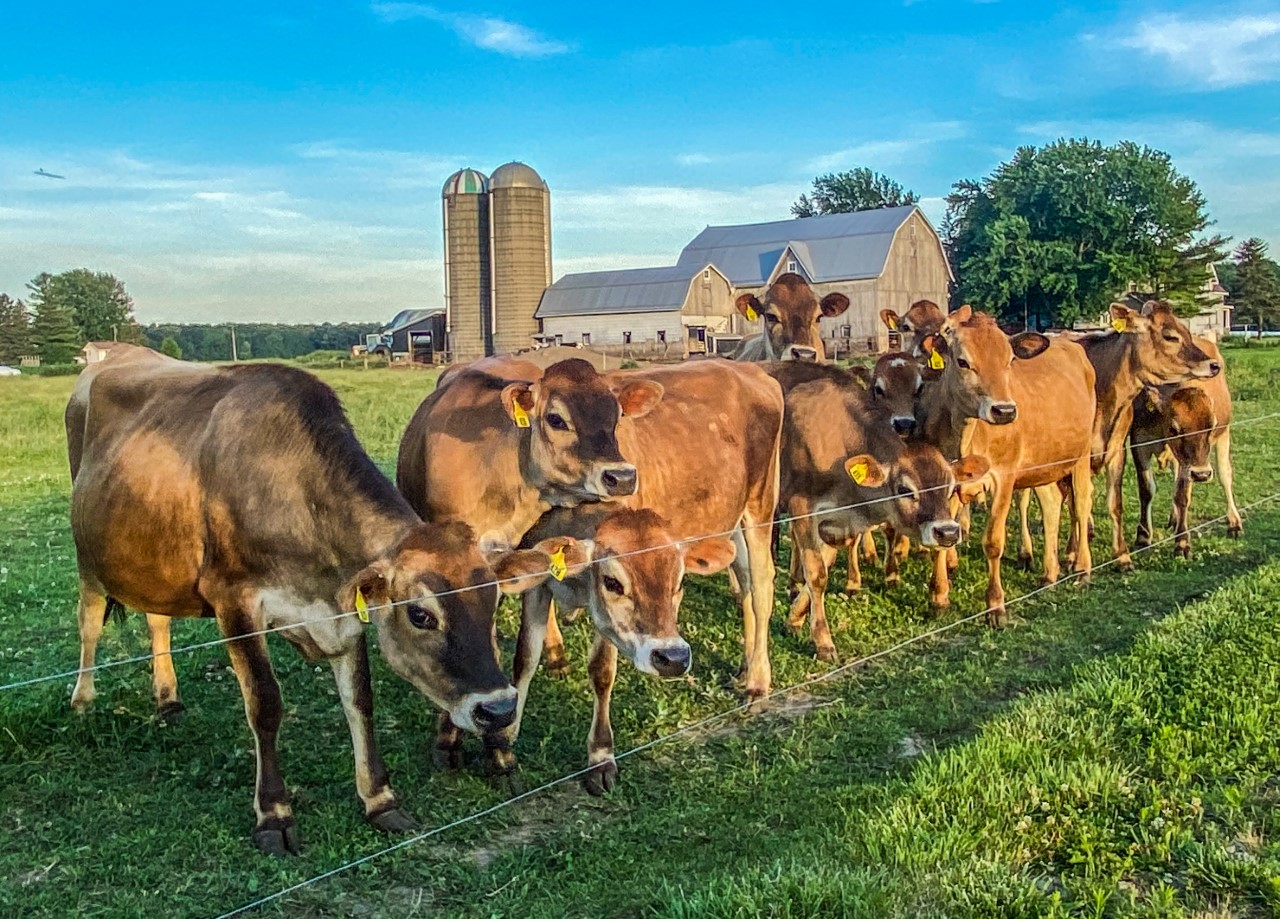
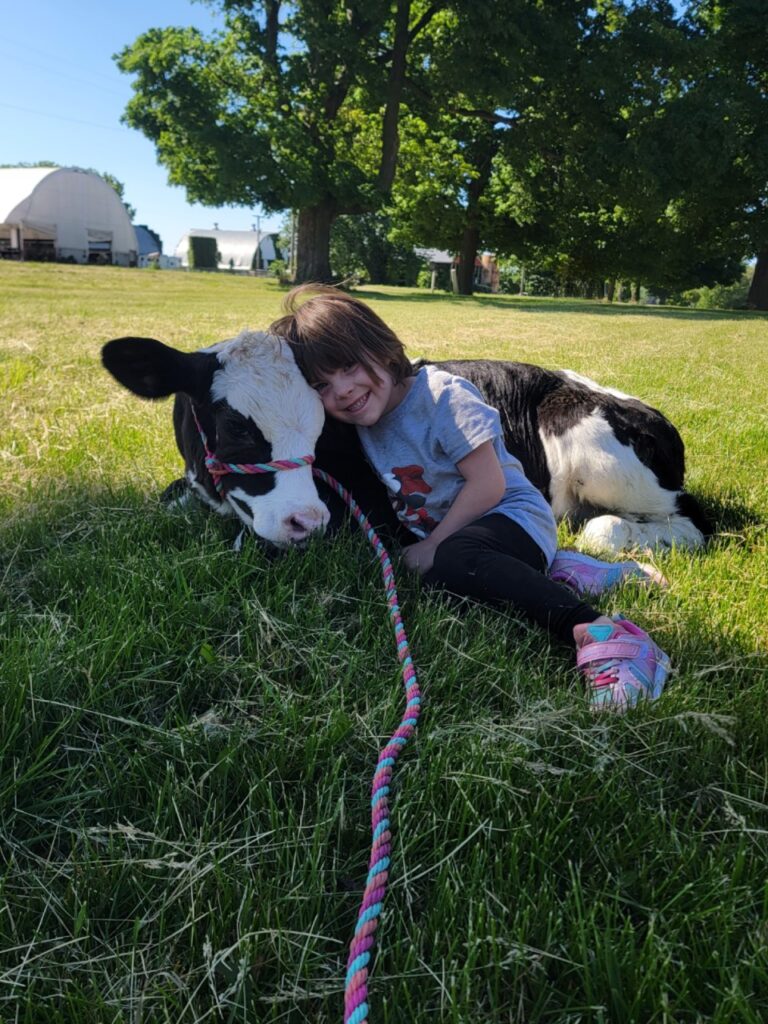


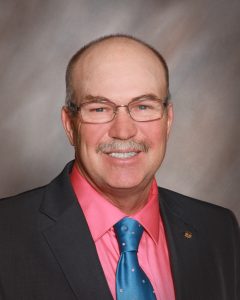 By Doug Chapin, MMPA Board Chairman
By Doug Chapin, MMPA Board Chairman
 Hannah Tietz
Hannah Tietz
